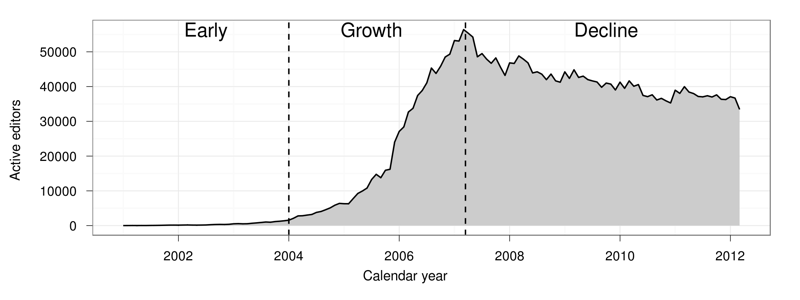Technology Review on Wikipedia’s decline
By aaron on

The number of active editors is plotted over time for the English Language Wikipedia
Tom Simonite at Technology Review just published a great piece covering “The Decline of Wikipedia” where they cite my my work (published in American Behavioral Scientist, see also the free preprint) with Geiger, Morgan and Riedl exploring potential reasons for Wikipedia’s declining pool of editors (see figure above). In that work, we manually categorized newcomers to Wikipedia by the quality of their edits and built a set of models to predict which high quality newcomers would continue editing and which ones would leave the project. We showed that the reason for the decline is not due to the the quality of newcomers but rather the reception they receive; newcomers whose work is immediately rejected and who are sent warning messages about their behavior don’t come back. It looks like the dramatic change in 2007 corresponds to the introduction of counter-vandalism robots and automated tools in Wikipedia that were used to reject newcomers’ edits.